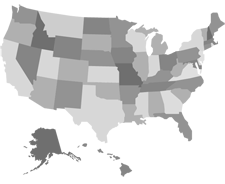Chart Your Own Course to Financial Security
It's definitely not easy staying on track with your personal finances. The mindset of millions of American consumers seems to be:- Relentlessly pursue upward mobility.
- Constantly attain more "things".
- Use credit to extend your actual income.
- Never put off a purchase until later if you can have it today.
Haven't you ever wondered how your friends (or neighbors or co-workers) afford those two week vacations to Europe? The new automobiles every few years? The bigger houses? The expensive, luxury watches? The private schools for their children? How do they manage to have no financial worries and a seemingly endless budget?
Well, appearances can be deceiving. According to recent studies, seven out of ten American families live from paycheck to paycheck. So while it may seem that people are doing great and haven't got any money worries to speak of, the reality is that each and every one of these individuals is only one unexpected financial need away from disaster. Something as simple as an unplanned car repair or broken water heater can quickly bring down the financial house of cards in which so many Americans are living.
Yes, vacations are nice and everyone deserves some time away, right? But how much fun is it to still be paying off a trip one or two years down the road? If you're worried about losing your home to foreclosure or your job security is a bit shaky, how much are you going to enjoy driving around in a fancy car which costs you $450 a month?
It's Time to Get Real about Your Finances
Trying to keep up with your friends or neighbors is an exhausting and pointless endeavor. There will always be a bigger house, a better neighborhood, a fancier TV… the list never ends! If you're ready to get off the financial merry-go-round of living from paycheck to paycheck, constantly worrying about how you're going to pay all the bills, being totally unprepared for even the smallest financial emergency- congratulations! You've just taken the first (and sometimes hardest) step.
Here are some simple things you need to do to get a fresh start with your finances:
- Take an honest look at your situation. It's impossible to move forward without knowing the facts. It doesn't have to be complicated. Simply make a list of your assets (what you actually "own") and your liabilities (what you owe).
- Create a budget. If the word "budget" terrifies you, then call it a spending plan. It's nearly impossible to control your finances without a budget. Again, keep it simple. Write down all sources of monthly income. Then calculate your monthly bills. Hopefully your income exceeds your expenditures, but that's not always the case. Don't panic.
- Know where every cent goes. For the next month, keep every receipt! At the end of the four weeks, go over each receipt and total them. This is usually an eye-opening experience for most people. But it drives home the fact that cappuccinos, sandwiches, drinks, magazines, and every other "small" purchase you make really add up. You may think that because what you buy is relatively inexpensive, it's also inconsequential. But when you actually total them together, it's easy to see how they can really wreck a budget.
- Commit to taking on no more new debt. The old adage "when you're in a hole, stop digging" certainly applies here. You will never get out of debt if you continue to borrow. Stop bleeding money. Put away your credit cards.
- Get current on your bills. Late fees, overdraft charges, penalty fees- why give your creditors even more money than you already owe? Make it a priority to pay your bills on time and stay current. Sign up for BillPay through your bank or pay your bills online. There is no reason you should ever forget a bill or make a late payment.
- Talk with your spouse or partner about money and financial goals. To ensure success, everyone needs to be working towards the same goals. If one person adheres to the budget and the other person is still spending freely, something's going to implode. And it will probably be your finances.
Remember What's Important
It's very easy to get caught up in the financial rat-race of constantly trying to keep up with everyone else. Now is a perfect time to take the pressure off yourself and re-focus your energy on what is really important. Making smart financial decisions that will provide you and your family with real security is one of the best things you will ever do. Determine what really matters to you and what makes you truly happy.
A few words of financial wisdom:
- Money doesn't buy contentment. Think back on when you've been the most happy. It probably doesn't have anything to do with the amount of money you had. If you find you've given up a lot of the things that brought you joy, consider changing things up to regain those important feelings once again.
- Enough is never enough. Unfortunately, there's always more. Instead, why not think about simplifying your life. Do you really need an enormous house and all the trappings that come with it? If you're working a hundred hours a week just to cover the mortgage payments, what's the point? You're never there anyway. Look for ways to make real positive changes in all aspects of your life.
- Stuff doesn't make you happy. Sure, that big screen television make bring on some initial euphoria, but paying for it over the next three or four years certainly won't. The bottom line is if you can't afford to pay for something with cash, you can't afford it period. Life isn't some game where whoever has the most stuff wins. Imagine the peace and contentment of having no debt and being financially secure. There's the real win!
State Guides
- Alabama
- Alaska
- Arizona
- Arkansas
- California
- Colorado
- Connecticut
- Delaware
- District of Columbia
- Florida
- Georgia
- Hawaii
- Idaho
- Illinois
- Indiana
- Iowa
- Kansas
- Kentucky
- Louisiana
- Maine
- Maryland
- Massachusetts
- Michigan
- Minnesota
- Mississippi
- Missouri
- Montana
- Nebraska
- Nevada
- New Hampshire
- New Jersey
- New Mexico
- New York
- North Carolina
- North Dakota
- Ohio
- Oklahoma
- Oregon
- Pennsylvania
- Rhode Island
- South Carolina
- South Dakota
- Tennessee
- Texas
- Utah
- Vermont
- Virginia
- Washington
- West Virginia
- Wisconsin
- Wyoming



